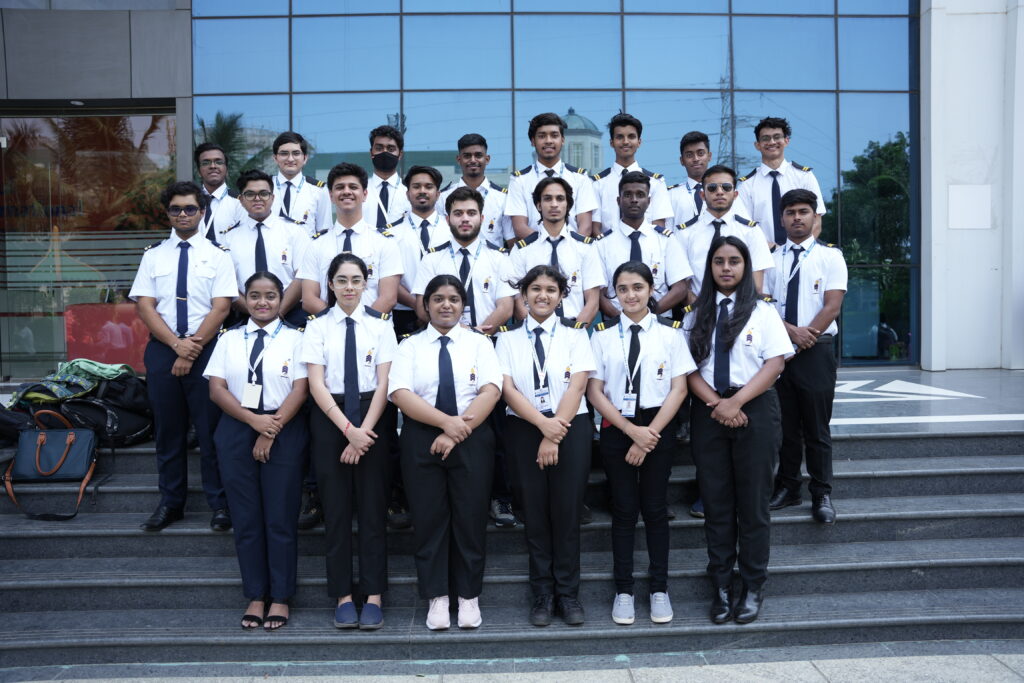Aviation is one of the most dynamic and rewarding career fields today. As air travel becomes more accessible, the demand for trained aviation professionals rises. For Indian students who aspire to fly or work in the aviation sector, B.Sc Aviation Colleges in India offer a strong foundation. These institutions are designed to groom students into skilled, industry-ready professionals.
A Solid Academic Framework for Aviation Careers
Academic theory and practical knowledge are covered in the well-organized and targeted curriculum offered by B.Sc. aviation colleges in India. Aerodynamics, meteorology, air navigation, and aircraft systems are among the topics that students study. They also receive instruction in safety protocols and aviation rules. Every student will develop a strong grasp of flight science and aviation management thanks to this academic balance.
Integrated Practical Training for Real-World Readiness
In addition to theory, hands-on training is an essential component of education. Flight training modules, simulator sessions, and practical workshops are all included in B.Sc. aviation colleges in India. The confidence required to handle real-world flying issues is developed by these hands-on experiences. Students engage with simulation tools and equipment of the highest caliber. They are better able to use their theoretical knowledge in practical settings thanks to this exposure.
Building Essential Soft Skills Alongside Technical Knowledge
Professionals in aviation need to be more than just technically proficient. India’s B.Sc. aviation colleges emphasize on students’ leadership, communication, and decision-making abilities. The training includes presentations, group discussions, and exercises for developing interpersonal skills. Through these activities, kids develop into capable team players and potential leaders. Strong soft skills are essential for careers in both flying and ground-based aviation.
Experienced Faculty That Bridges Academia and Industry
In India, the instructors at B.Sc. aviation colleges are frequently seasoned experts. They bring to the classroom years of teaching and flying expertise. Through their mentoring, students have a thorough awareness of what is expected of them in the profession. These mentors also provide insights beyond academics and help students choose appropriate career pathways. Their real-world experiences enhance the educational setting and help students relate to the subjects.
Aviation-Focused Infrastructure to Enhance Learning
Modern facilities have a significant impact on aviation education. India’s B.Sc. aviation colleges are spending more money on state-of-the-art labs, flight simulators, and contemporary classrooms. These learning environments provide students with full preparation by simulating real aviation scenarios. Students have a more practical grasp when they train on a campus that is well-equipped. This facilitates the move from campus to the workplace or cockpit.
Specialised Courses That Open Multiple Career Doors
Students can pursue careers other than piloting. India’s B.Sc. aviation colleges have electives that address a variety of jobs. Aircraft maintenance, airline management, air traffic control, and airport operations are a few examples. As a result, students have the opportunity to investigate a variety of employment alternatives. They can match their career with their interest by carefully selecting their area of expertise. The show is appropriate for a broad audience because of its adaptability.
Internship Opportunities That Offer Industry Exposure
An effective internship program serves as a link between the business and academic worlds. Students can intern with reputable aviation organizations through B.Sc. aviation colleges in India. Through these internships, students can see how the industry runs daily. Additionally, it increases employability by adding worthwhile experience to their resumes. Additionally, internships are a fantastic way to network with people in the business.
A Supportive Network of Alumni and Industry Links
In India, a large number of B.Sc. aviation colleges have a robust alumni base. Current students frequently interact with former students who are now employed professionals. They provide job referrals, placement help, and coaching. Students benefit from this peer support system by becoming more self-assured and motivated. Additionally, it provides students with a realistic outlook on their professional path.
Placement Support That Translates into Real Jobs
One important aspect of B.Sc. aviation colleges in India is career help. Placement cells are frequently available at these universities to assist students in obtaining interviews for jobs. The cells run personality development programs, resume writing workshops, and practice interviews. Students feel ready to meet recruiters as a result. Additionally, several universities work with aviation firms to deploy students on campus.
Emphasis on Safety and Regulatory Knowledge
Safety in flight cannot be compromised. Safety instruction is a top priority for B.Sc. aviation colleges in India. Aviation regulations, safety precautions, and emergency methods are taught to students. They can confidently handle unforeseen circumstances thanks to this understanding. Additionally, this training improves the industry’s general safety culture.
A Balanced Mix of Discipline and Innovation
The aviation industry is a disciplined and sophisticated one. But it also encourages creativity and foresight. India’s B.Sc. Aviation Colleges uphold this equilibrium in their curricula. While adhering to established protocols, students are encouraged to use their creativity. This kind of thinking equips them to successfully handle the challenges of contemporary aviation.
Affordable Education with High Return on Investment
Although pilot training might be costly, B.Sc. aviation colleges in India frequently provide affordable courses. These courses offer high-quality instruction at affordable costs. Furthermore, a lot of universities give scholarships to worthy candidates. Students thus receive substantial returns on their investment in education. As a result, a wider range of people can pursue jobs in aviation.
Growth of the Aviation Sector in India
The aviation sector in India is one of the fastest-growing globally. The need for qualified specialists is growing as a result of this quick expansion. India’s B.Sc. aviation colleges play a key role in satisfying this need. There will be a demand for more qualified graduates as the industry grows. Enrolling at such a college now can therefore result in fantastic prospects later on.
Support for International Aviation Certifications
Additionally, certain Indian B.Sc. aviation colleges assist students in obtaining international certificates. These could include certifications from international aviation regulators. Graduates can apply for jobs outside of India with these credentials. This increases their profiles’ worldwide visibility and improves their employment prospects. Thus, this benefit should be taken into account by students searching for international careers.
A Pathway to Higher Education and Advanced Training
Students can continue their education after earning a B.Sc. in aviation. A commercial pilot’s license or an MBA in aviation management are two possible options. Students in India are frequently directed to these advanced programs by the B.Sc. Aviation Colleges. Students can advance more quickly to senior roles by expanding on their undergraduate degree. For future success, the groundwork established at the undergraduate level is essential.



